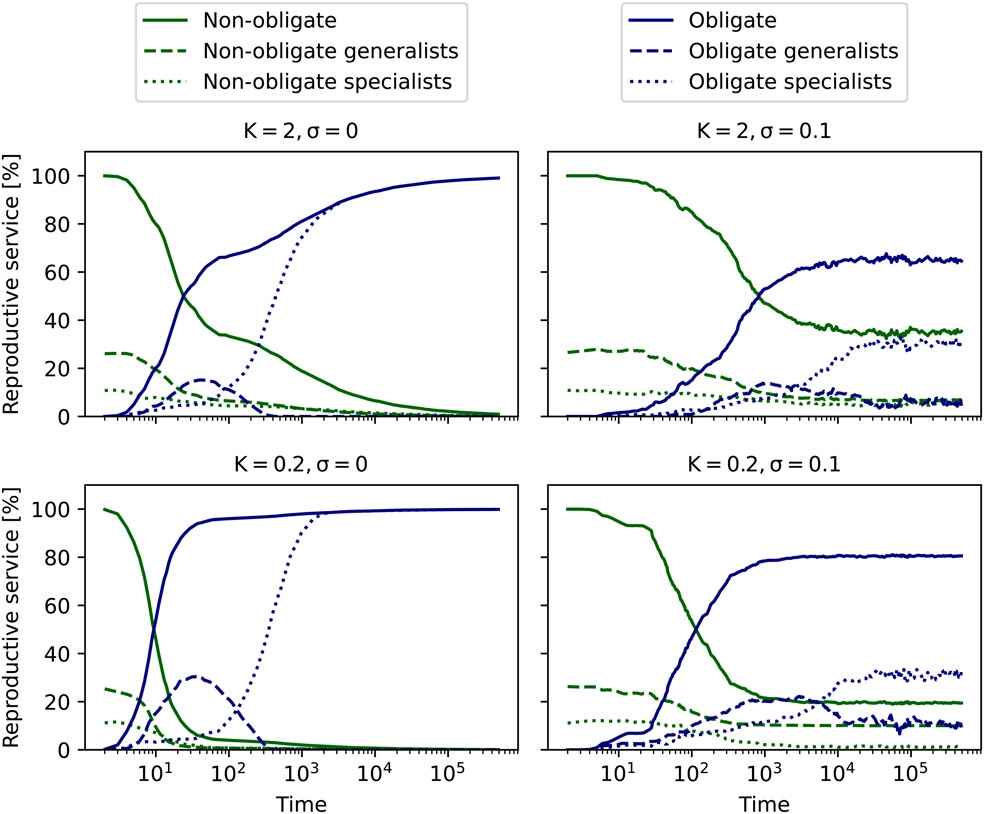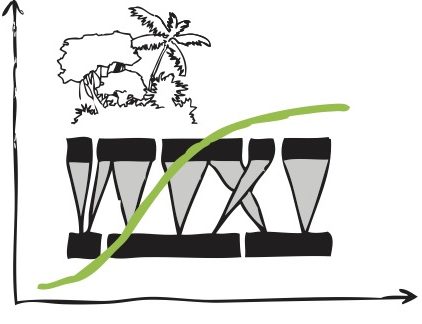The recovery of forest ecosystems relies on mutualistic interactions, particularly pollinators and seed-dispersers, or plant defenses by ants. A new modelling study on the succession and assembly of these interactions revealed an important role of non-obligate animal mutualists. Timo Metz performed computer simulations based on trait matching between mutualists, now published in Oikos. His work confirmed that non-obligate and generalized mutualists facilitate network assembly during early stages of recovery, paving the way for obligate and specialist mutualists that predominate later successional stages. Non-obligate mutualists may include facultative mutualists or non-resident species that have their main resources outside the target site – their role as pioneers deserves particular attention when understanding the success of forest recovery.


